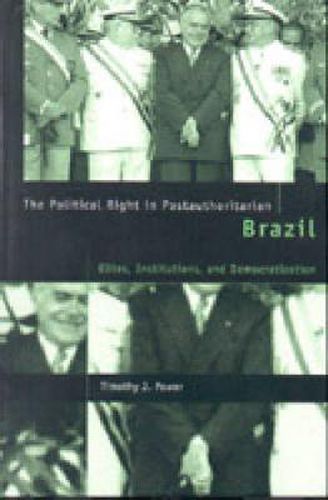Readings Newsletter
Become a Readings Member to make your shopping experience even easier.
Sign in or sign up for free!
You’re not far away from qualifying for FREE standard shipping within Australia
You’ve qualified for FREE standard shipping within Australia
The cart is loading…






Brazil was an early case of a conservative transition from authoritarian rule, wherein civilian elites associated with the outgoing military regime assumed a commanding role in the early years of democracy. When this phenomenon was first theorized in the mid-1980s, there were few other comparable cases, with Turkey and South Korea perhaps the best known. In the past decade the proliferation of new democracies in Eastern Europe has drawn attention to the impressive survival skills of ex-authoritarian elites.
In this book Power examines this cohort of civilian politicians, showing how they adapted to competitive politics after the 1985 regime transition and how their socialization to politics in the 1960s and 1970s shaped their initially negative attitudes toward institution building in the 1980s and 1990s-with deleterious consequences for Brazil’s fledgling democracy. Power’s study sheds new light on the paradoxes, tradeoffs, and drawbacks of conservative transitions to democracy.
$9.00 standard shipping within Australia
FREE standard shipping within Australia for orders over $100.00
Express & International shipping calculated at checkout
Brazil was an early case of a conservative transition from authoritarian rule, wherein civilian elites associated with the outgoing military regime assumed a commanding role in the early years of democracy. When this phenomenon was first theorized in the mid-1980s, there were few other comparable cases, with Turkey and South Korea perhaps the best known. In the past decade the proliferation of new democracies in Eastern Europe has drawn attention to the impressive survival skills of ex-authoritarian elites.
In this book Power examines this cohort of civilian politicians, showing how they adapted to competitive politics after the 1985 regime transition and how their socialization to politics in the 1960s and 1970s shaped their initially negative attitudes toward institution building in the 1980s and 1990s-with deleterious consequences for Brazil’s fledgling democracy. Power’s study sheds new light on the paradoxes, tradeoffs, and drawbacks of conservative transitions to democracy.